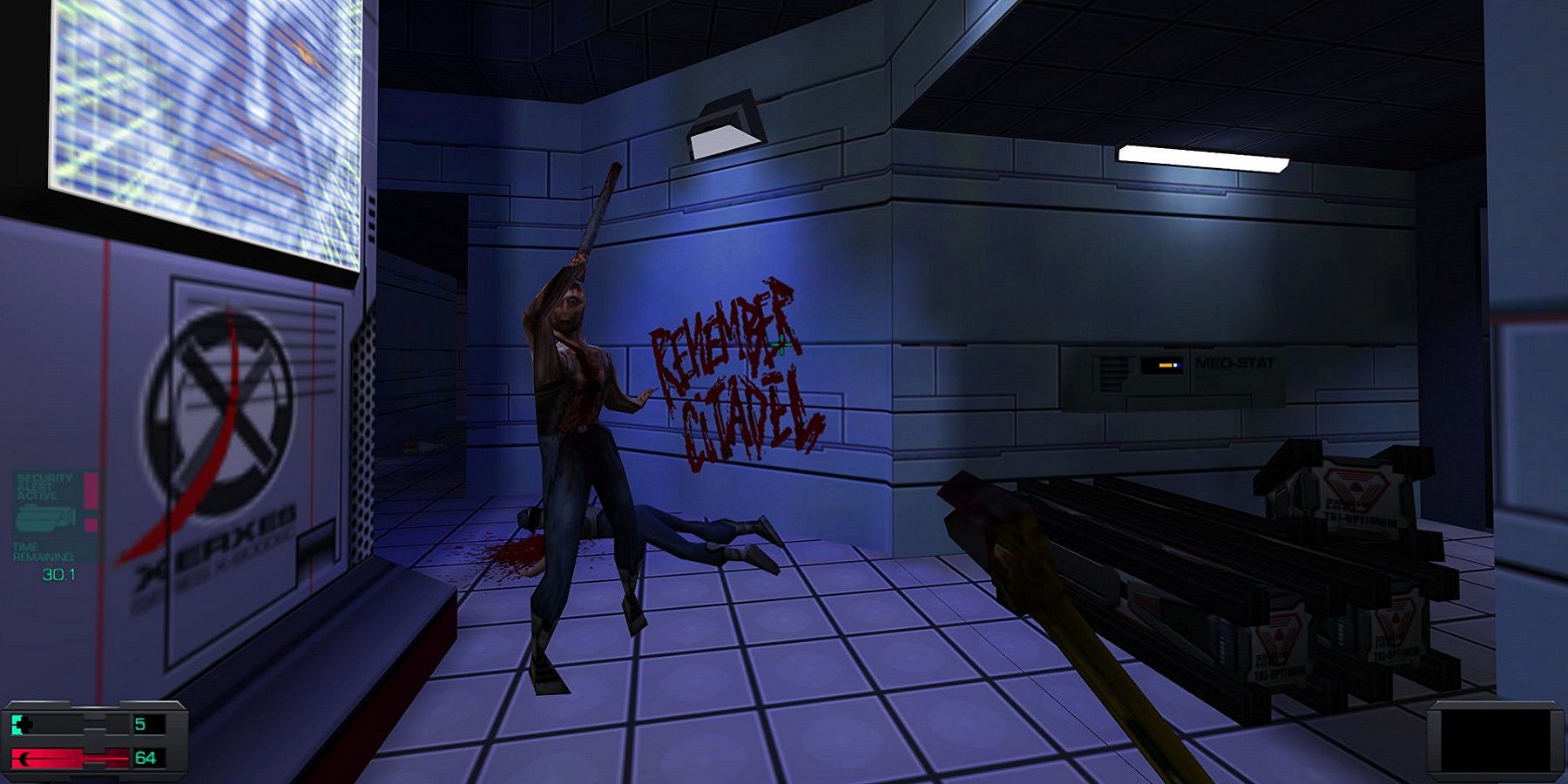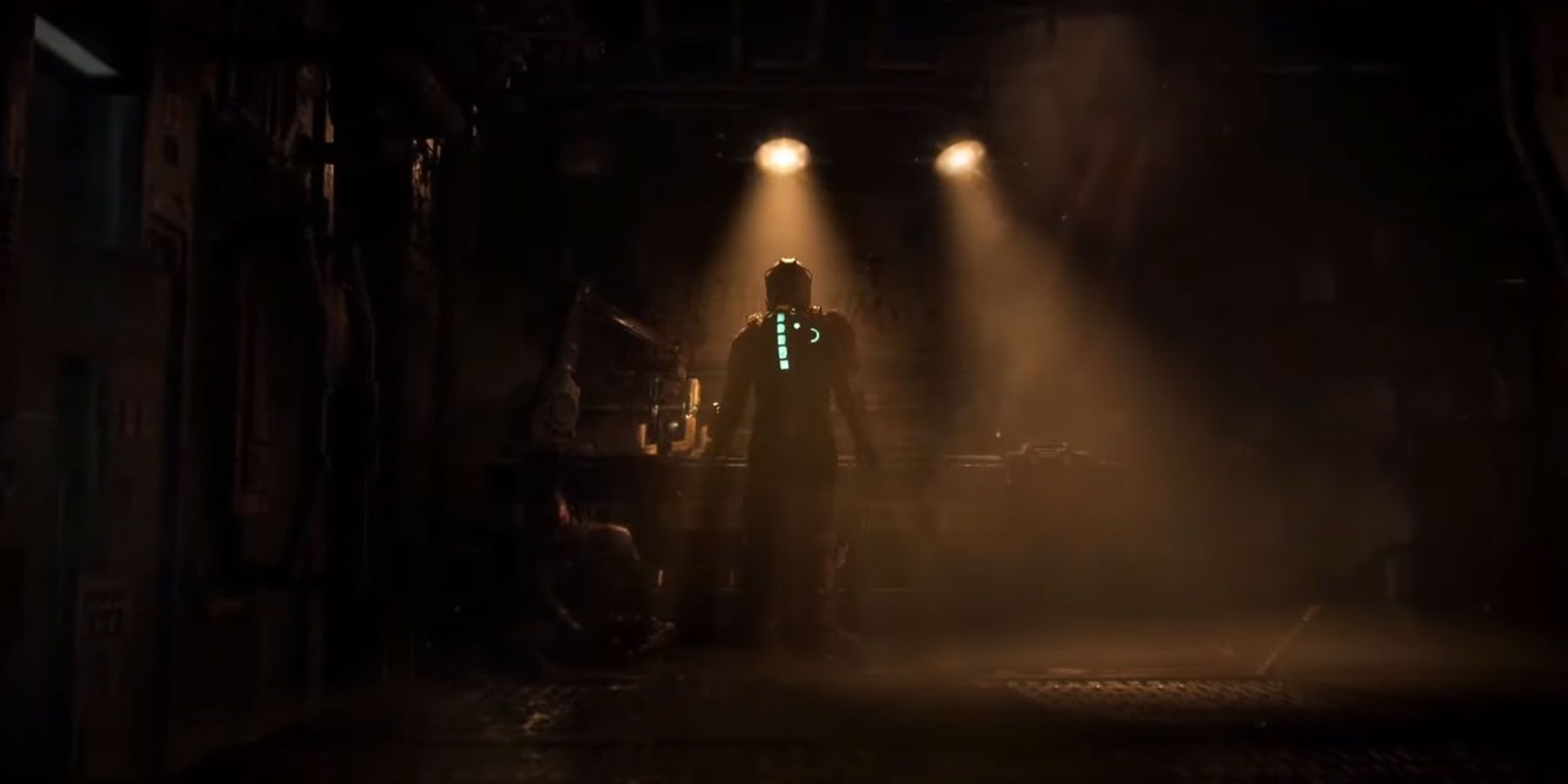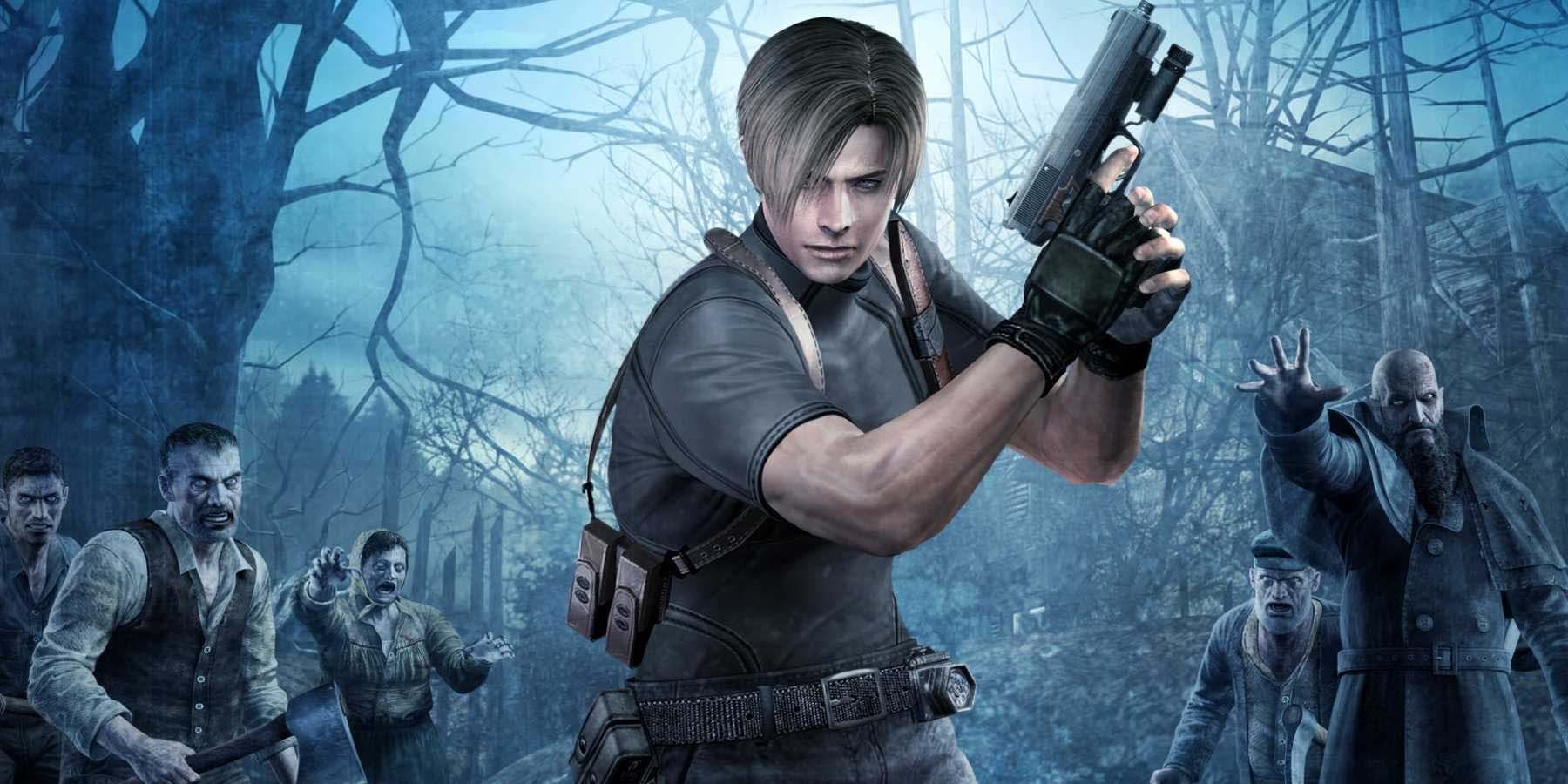The Resident Evil franchise is usually associated with inventing the survival horror genre. While the term was first used for this series, the first game drew inspiration from many games before it, including Sweet Home. The Resident Evil series has since had an influence on a number of games and continued to dominate the horror genre (although it deviated somewhat with more action-packed gameplay in RE5/RE6). However, there is a surprisingly entwined history between the Resident Evil, Dead Space, and System Shock franchises. Not only did these three series influence each other, but they also had direct ramifications on each other's development.
System Shock is noted for having many spiritual successors, including BioShock, Deus Ex, and Prey, though it is definitely usually less associated with Resident Evil and Dead Space. That being said, the three have developed a reciprocal influence over each other. For context, System Shock was released in 1994, the first Resident Evil came out in 1998, and Dead Space was released in 2008. Considering the upcoming live-action Resident Evil film, a recently announced live-action System Shock TV show, Dead Space, and System Shock remakes in the works, the closely linked history is more evident now than ever.
RELATED: The Most Successful Video Game Spiritual Successors
Dead Space and System Shock

It's well known that Dead Space drew inspiration from titles such as Resident Evil and Silent Hill. However, there has long been a rumor that Dead Space was originally a third System Shock. Michael Condrey disavowed this rumor, saying that System Shock and its sequel were definitely a big influence, but the title was never officially attached.
However, one of the game's designers, Ben Wanat confirmed that at one point the team did want to make a sequel to System Shock until Resident Evil 4 was released. More on that below, but regardless of whether it was intended to be an actual System Shock game or not, the influence of System Shock on Dead Space is very clear, from the isolated paranoia-inducing setting, to its blend of sci-fi and horror.
The rights to System Shock now belong to Nightdive Studios, but the games were published by EA (or a subsidiary). Visceral Games, who created Dead Space, are also owned by EA, and so before they had the hit IP of Dead Space, it makes sense the development team was exploring other franchises published by EA. While, as mentioned, System Shock has a tonne of spiritual successors, this case is interesting as Dead Space could have been a System Shock game, and while the influence of System Shock is still abundantly clear from the game, it was Resident Evil that became its main influence.
RELATED: 10 Games That Defined The Survival Horror Genre & Where You Can Play Them
Resident Evil and Dead Space

Glen Schofield, the executive producer for Dead Space has been pretty open about how much Resident Evil influenced this game, and in particular Resident Evil 4. As it had come out recently before development on Dead Space, it was the gameplay mechanics of Resident Evil 4 that had the most significant impact on the gameplay of Dead Space. Schofield has stated in multiple interviews that the game was even referred to as "Resident Evil in space" to encapsulate the atmosphere and gameplay experience they were aiming for. The upcoming Dead Space remake is also reported to be looking to Resident Evil for inspiration.
Essentially, the team behind Dead Space wanted to create an isolated survival horror in space that was as effective as Resident Evil. Dead Space then became an important entry into the survival horror genre in its own right, and went on to influence future survival horrors. However, Dead Space also draws inspiration from one of the most influential sci-fi horrors in gaming, System Shock.
As mentioned earlier, System Shock is four years Resident Evil's senior, and considered by some as an earlier survival horror game. Certainly Resident Evil would not be what it is without precursor games like System Shock. Dead Space may have once been a System Shock sequel, but even as its own franchise, it was only possible thanks to the history of games that have come before it, and the mechanics they introduced.
Resident Evil and System Shock

No genre has defined parameters, and there are multiple different academic and critical approaches to genre. The question of whether System Shock counts as a survival horror is dependent on whether it can be retroactively defined as such, since the phrase was only coined with Resident Evil. One of the main innovations System Shock is praised for is introducing a more narrative-focused FPS, as it was uncommon at the time.
Resident Evil would later delve somewhat into more fast-paced shooting action in its 5th and 6th games. The horror created in System Shock and Resident Evil is similar in many respects, and the temporal proximity to each other means they would have some unavoidable influence on each other.
While System Shock preceded Resident Evil in the game world, Resident Evil had explored the live-action world long before System Shock would. In particular, the upcoming Resident Evil: Welcome to Raccoon City is likely to have a huge influence on the System Shock tv show, particularly as a live-action adaptation of video game horror. Furthermore, the themes in both games are so similar, with mutated enemies, corrupt shadowy corporations, and a confined, claustrophobic setting. As does Dead Space, which is getting a remake after Resident Evil has had multiple successful ones.
Ultimately, it's impossible to know what any of these games would have been without the other. The fact is they are three directly related franchises in video game history that have continued mutual inspiration to this day. While Resident Evil is certainly the most successful franchise of the three, it could not have happened without preceding games like System Shock. Dead Space further emphasizes this link by utilizing elements of them both, but still created a unique franchise that could on to have an influence of its own.

